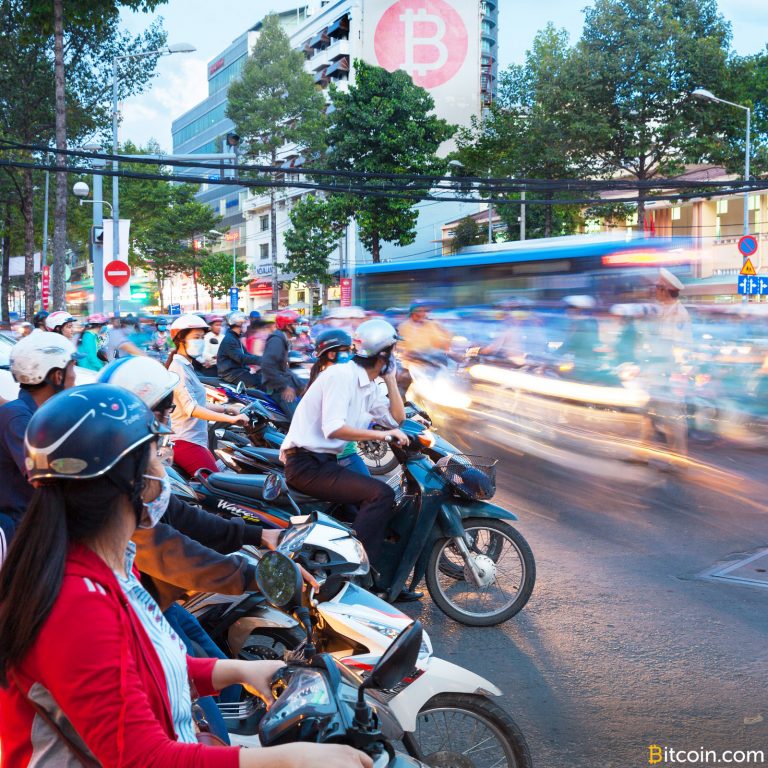Vietnam at Crossroads on Cryptocurrency Regulations
source: Bitcoin News
2018. Nov. 11. 19:00

Vietnamese authorities are still considering their approach to regulating the cryptocurrency space. The Ministry of Justice has put forward several alternative solutions and the Ministry of Industry and Trade has expressed its opposition to the ban on imports of mining equipment.
Also read: Uzbekistan Sets up International Arbitration Center for Crypto Businesses
Justice Ministry Reports on Regulatory Approaches
Vietnam’s Ministry of Justice has submitted ? report to the government in Hanoi that contains a review of the current legislation and an assessment of cryptocurrency-related business activities in the country. The authors of the document have also made a number of proposals about changes they consider necessary.
The ministry explores three alternative policies applied in different parts of the world. The first approach, referred to as “floating,” involves the implementation of a relatively lax regulatory regime. The second called “prohibiting” is pretty much self-explanatory. And the third option is to legalize digital asset transactions under certain conditions.
The ministry has surveyed the development of cryptocurrencies in Vietnam and abroad. The pros and cons of the examined trends have been analyzed, pointed out Nguyen Thanh Tu, director of the Department of Civil and Economic Laws. The conducted analysis will form the basis for further considerations by the Vietnamese government, Tu said, as quoted by Vietnamnet.
Relevant ministries and departments will build an appropriate legal framework to govern digital assets and currencies after the executive power chooses the trend it wants to follow, the official added. He believes Hanoi should balance the risks and the potential associated with cryptocurrencies to ensure that investors benefit from them and to support the development of crypto technology in general.
Vietnam Still Undecided About Cryptocurrencies
Vietnamese authorities have not taken a final decision on cryptocurrencies yet. The country’s central bank has clearly stated that it does not recognize them as legal tender. In July, the bank said it’s not involved in any efforts to manage the circulation of bitcoin in Vietnam and warned that virtual coins cannot be used for payments. In July, the Vietnamese securities regulator told companies and investment funds to stay away from cryptocurrencies. Prime Minister Nguyen Xuan Phuc ordered relevant agencies to draft a legal framework for cryptocurrencies and the industry built around them.
According to an estimate quoted by Vi?t Nam News, around 1 percent of Vietnam’s population currently uses cryptocurrencies. In a country of 95 million people that’s almost a million crypto enthusiasts. Their number is expected to increase 30 times within the next decade. Local digital asset exchanges have been accelerating the proliferation of cryptocurrencies. Ho Chi Minh City-headquartered Bitcoin Vietnam is currently the most popular, as reported by Cryptocurrencyhub. The company that operates it also launched the Vbtc trading platform. Kenniex is a new exchange that started trading in May of this year. Platforms such as Remitano, Mesito and Localbitcoins offer peer-to-peer services on the Vietnamese crypto market.
Trade Ministry Objects to Ban on Imports of Mining Equipment
Cryptocurrency mining has become a source of income for many Vietnamese companies and ordinary citizens, but the business of minting digital coins is not exactly popular with some Vietnamese authorities. This past summer, the country’s Finance Ministry proposed a suspension of imports of mining equipment – a measure that the State Bank of Vietnam and the Ministry of Public Security supported. According to statistical data provided by the General Department of Vietnam Customs, more than 27,000 mining components have been imported into the country in 2017 and over 15,000 in the first five months of this year.
Not all institutions, however, are in favor of the ban. For instance, the Ministry of Industry and Trade has expressed concerns over the planned suspension, warning that the measure would affect all businesses using such hardware. It has submitted a proposal to the Prime Minister’s office to study and classify these devices before imposing any restrictions on their import. The Ministry of Information and Communications has already divided them into two categories, ASICs and GPUs, noting that video cards have other applications besides mining.
What are your expectations for the future of cryptocurrencies in Vietnam? Tell us in the comments section below.
Images courtesy of Shutterstock.
Make sure you do not miss any important Bitcoin-related news! Follow our news feed any which way you prefer; via Twitter, Facebook, Telegram, RSS or email (scroll down to the bottom of this page to subscribe). We’ve got daily, weekly and quarterly summaries in newsletter form. Bitcoin never sleeps. Neither do we.
The post Vietnam at Crossroads on Cryptocurrency Regulations appeared first on Bitcoin News.





